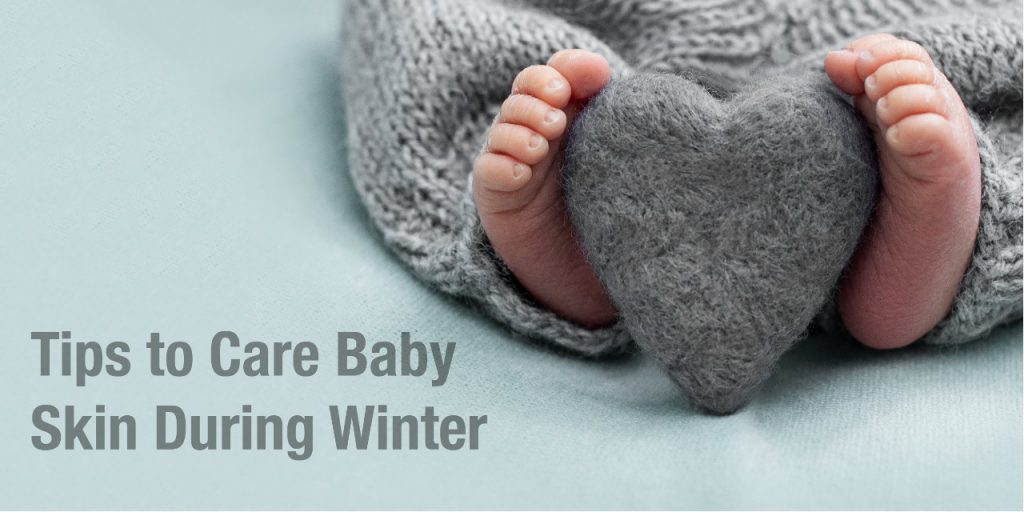
Your little one’s skin is the acme of softness and perfect skin. Those chubby, rosy-red, super-smooth and dangling cheeks make everyone go ‘aww.’
But winters can be tough on the delicate skin of your munchkins. In winter, the humidity level in the atmosphere drops which makes the water in skin evaporate more quickly leading to a dry, tight and flaky-looking skin.
While spending too much time in the tub or pool, being outside in cold weather or inside in dry heat, sensitivity to chemicals in soaps and lotions, teething drool and some foods could also lead to dry skin; with just a little extra attention, your cupcake’s skin can remain as soft and supple as the day he or she was born.
Here are a few tips to care for your baby’s skin during winter:
- Keep your bub hydrated. Dehydration is one of the most common reasons for dry nose, lips and mouth. So ensure that your baby drinks warm liquids throughout the day. Include hot soups of all kinds, juicy fruits and vegetables in their diet.
- Bath time should be short and gentle. Too much time in the tub leads to dry skin. For newborns, short baths three times a week is usually enough. And for kids, an everyday bath with warm water is suitable. Short bath with warm water keeps the protective oils of skin intact.
- Choose the right moisturizer. Apply an oil-based moisturizer or petroleum jelly immediately after bathing your munchkin. Avoid products made with perfumes or alcohol as they can be irritating or drying. Instead, opt for baby oil or coconut oil.
These oils can also be massaged into your baby’s skin to keep dry skin at bay. Every day before shower massage improves blood circulation that further strengthens the immune system.
- Add-on some layers. Babies can’t regulate their body temperature. Hence, putting on some layers will allow you to add or subtract clothes as necessary. But don’t add-on too many layers as heat and moisture can aggravate soft skin. One more layer of clothing than you’re wearing is the way to go.
- Go for natural clothing. Natural fabrics allow your baby’s skin to breathe freely. While experts suggest that direct contact of skin with wool should be avoided for babies; keep woollen caps, socks, mittens, blankets and booties handy and just add a thin layer of cotton clothing underneath.
In the end, remember that there is no one fit for all. You know what’s best for your little one. If daily moisturizing and these don’t seem helpful basic steps aren’t helping or if your baby’s skin is getting worse, consult your doctor.